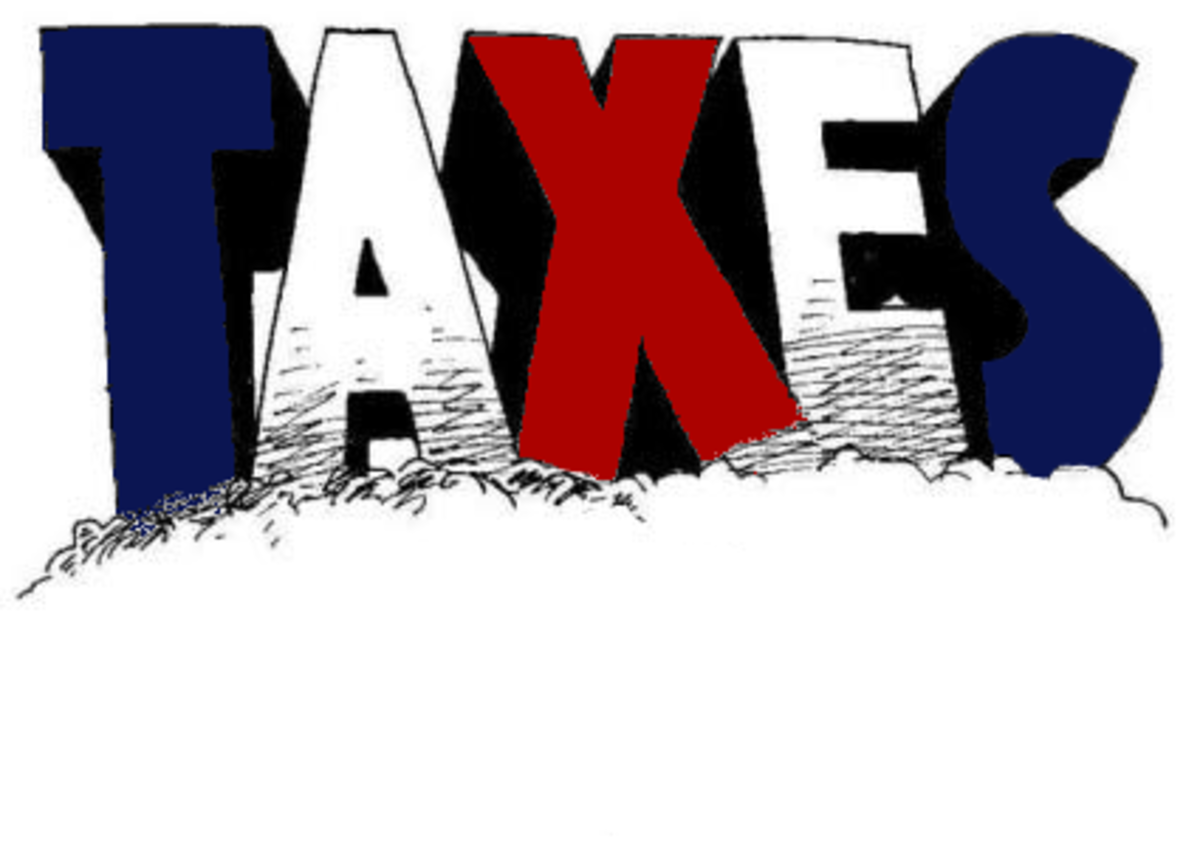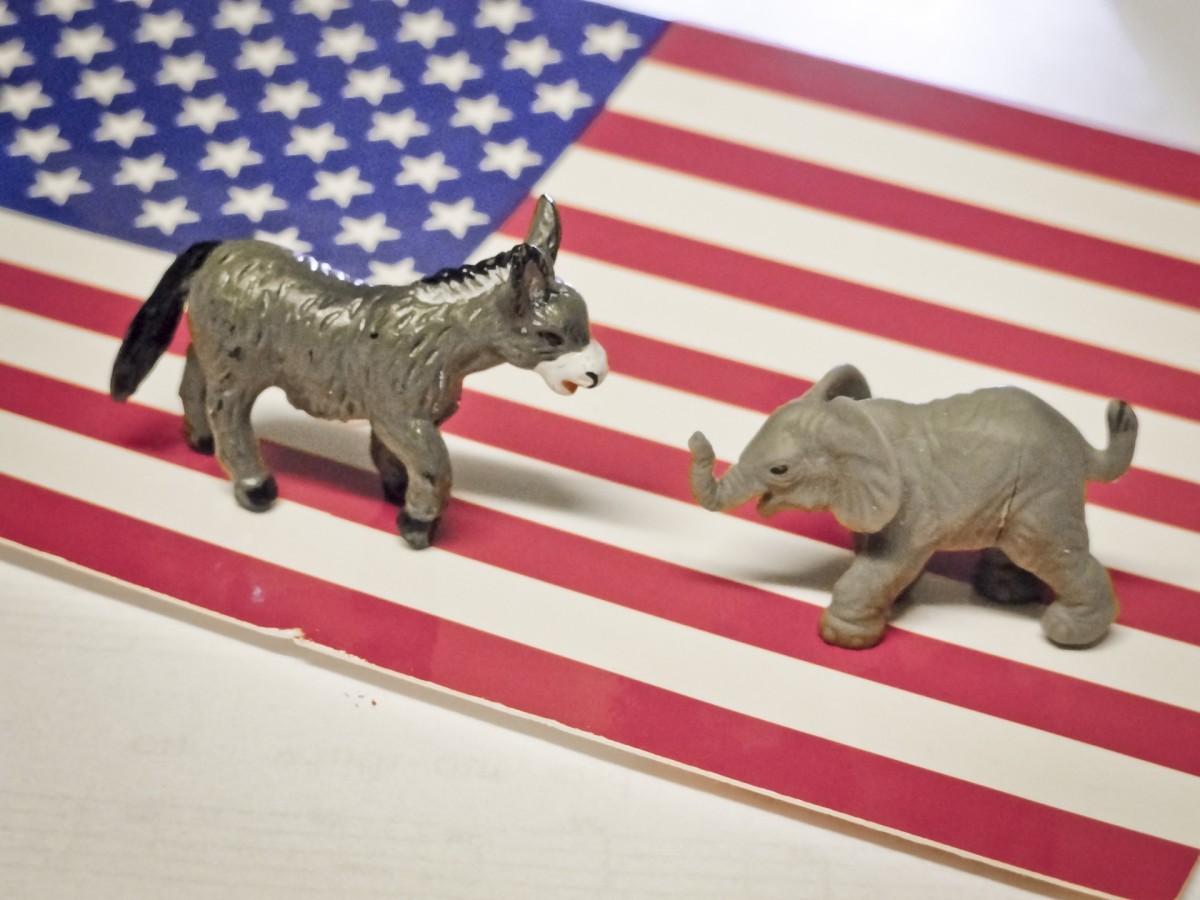Corporations Don't Pay Taxes

We Pay Corporate Taxes
Before this gets started let me preface this with a few disclaimers. I am by no means a business magnate, nor an economics major. This is not an Obama-Bush thing, or Republican-Democrat thing; this is an anti-taxation thing. In fact, I invite all those that can produce a legitimate argument to challenge my logic to offer their insight. I don’t think it can be done.
The premise for this hub is based on the statement that corporations don’t pay taxes; we do. We, the citizens, bear the burden of taxation in this country, and no matter how it is spun we, the citizens, will feel any taxation levied against any entity in this country. We pay for it in the cost of goods, services, and job losses. Whether it’s disguised as minimum wage, corporate sanction, eco-tax, or any number of nifty, little titles our officials like to give them. They cost us, the consumer. I have included a quick and simple explanation to prove the point. Please feel free to substitute any type of taxation increase into the second paragraph. It all works the same.

Who Really Pays Taxes?
Margaret raises free-range chickens. She sells eggs at a road-side stand. She averages 100 dozen a day, priced at $1.50 per dozen. That means she earns $150 dollars a day, and $4,500 a month. Her livestock expenses amount to $3,500 dollars a month for feed, shelter, taxes, and vet bills, leaving her $1,000 profit to cover her other expenses.
The government decides to raise taxes by 5% and impose a 5% sales tax on produce. Since Margaret makes $4500 a month this 10% change means that Margaret must pay an additional $450 dollars a month. That means an extra $15.00 a day, or $.15 cents a dozen; driving the price of a dozen eggs to $1.65. Margaret (the business) doesn’t pay the tax, the consumer does. This isn’t corporate greed, this is business economics 101. Margaret still needs her $1,000 a month profit to pay her other expenses. This is the only way her business, and she, can survive.
Does this make Margaret an evil corporation for passing the cost of her taxes onto the consumer? No it doesn’t. All businesses must be profitable to succeed; whether it is money or community good. Without profit businesses fail. Every time a politician promises to tax a corporation, it leaves them two options. Figure out where to cut costs, or raise the price of the goods or services.
How Does a Business Cut Costs?
Where do businesses cut costs? Costs can be cut by streamlining production, or finding cheaper raw materials. Costs can be cut by reducing the quality of raw materials. But if those options are exhausted, or it will compromise the integrity of the product, where are costs cut? Labor is usually the next option. Employers can cut the number of workers, cut the amount being paid out (overtime, bonuses), or reduce benefits. All of the latter options affect the consumer. So when the government says it is going after big business by taxing, regulating, or otherwise punishing them for making money, it will eventually end up affecting the consumer; like it or not; believe it or not. But if you choose not to believe, then you are not being sensible or rational.

Lower Taxes Benefit Everyone
It has been shown time-and-time again that the best way to jump start any business is to free-up money for them to work with. Somehow it has been imagined that any profit a business makes goes right into the owner’s pocket. If you give a company a break, the owner folds it all up and puts it in his pocket. That’s not the case. Give a company a break, and stockholders benefit, bonuses for employees may increase, more workers may be hired, or the cost of goods and services may drop. Good business owners know that more money to work with is an opportunity to grow a consumer base by becoming more competitive. Being competitive could include increased marketing, lowering prices, or improving quality without raising costs. Lowering taxes, sanctions and penalties benefit the consumer, not just the business.
Good and Bad Business
There are always going to be poorly run businesses. The government cannot do anything about that. No amount of regulation and oversight is going the stop the ridiculously naïve from parting with their money, someone running a scam, or a business taking advantage of a situation. Recently, we have been inundated by media coverage of those behaving badly, but that is just a small percentage. Our economy is contingent on the continued existence of well-run, competitive and diverse industry. Let our businessmen do what they do best, and stop punishing them for being successful. Something to keep in mind while driving to your job; the one you probably owe to a successful businessman.









